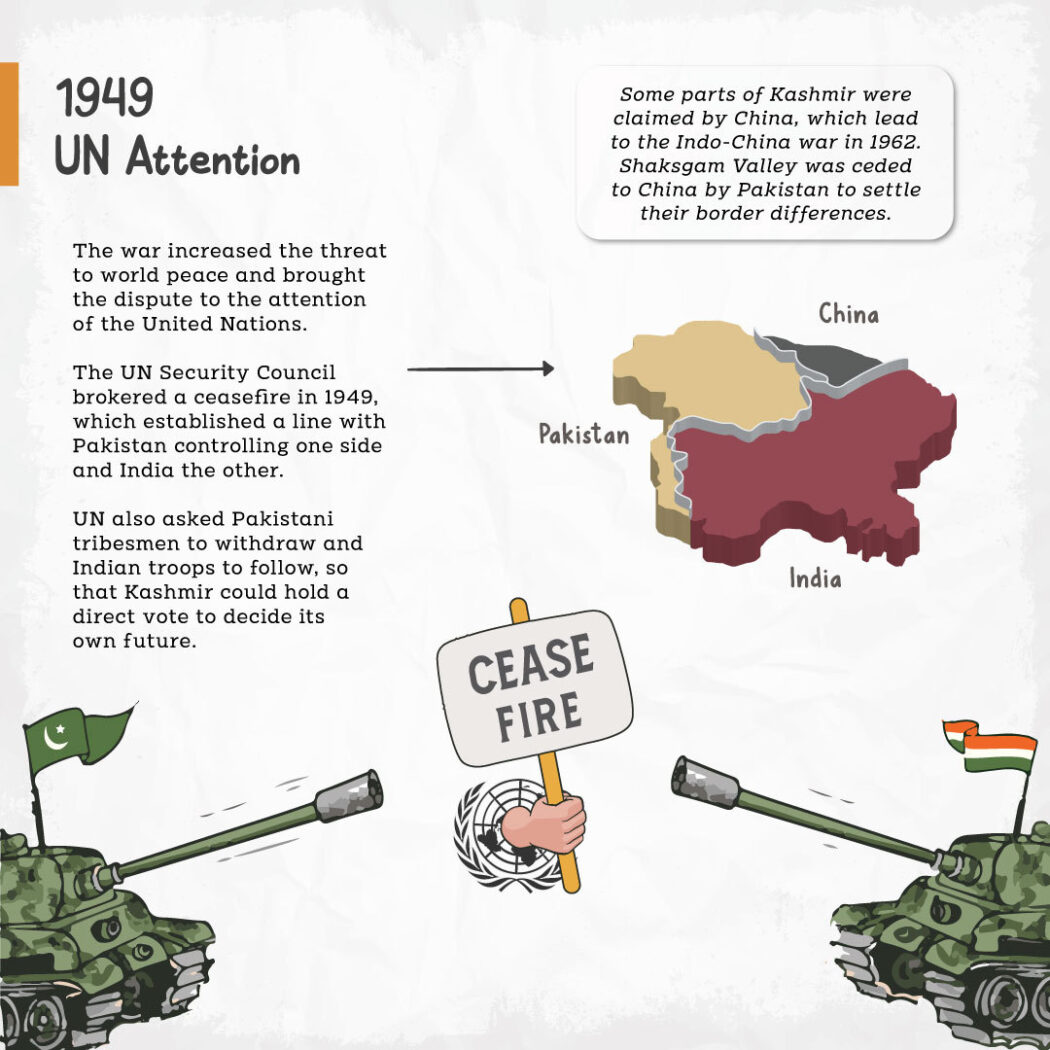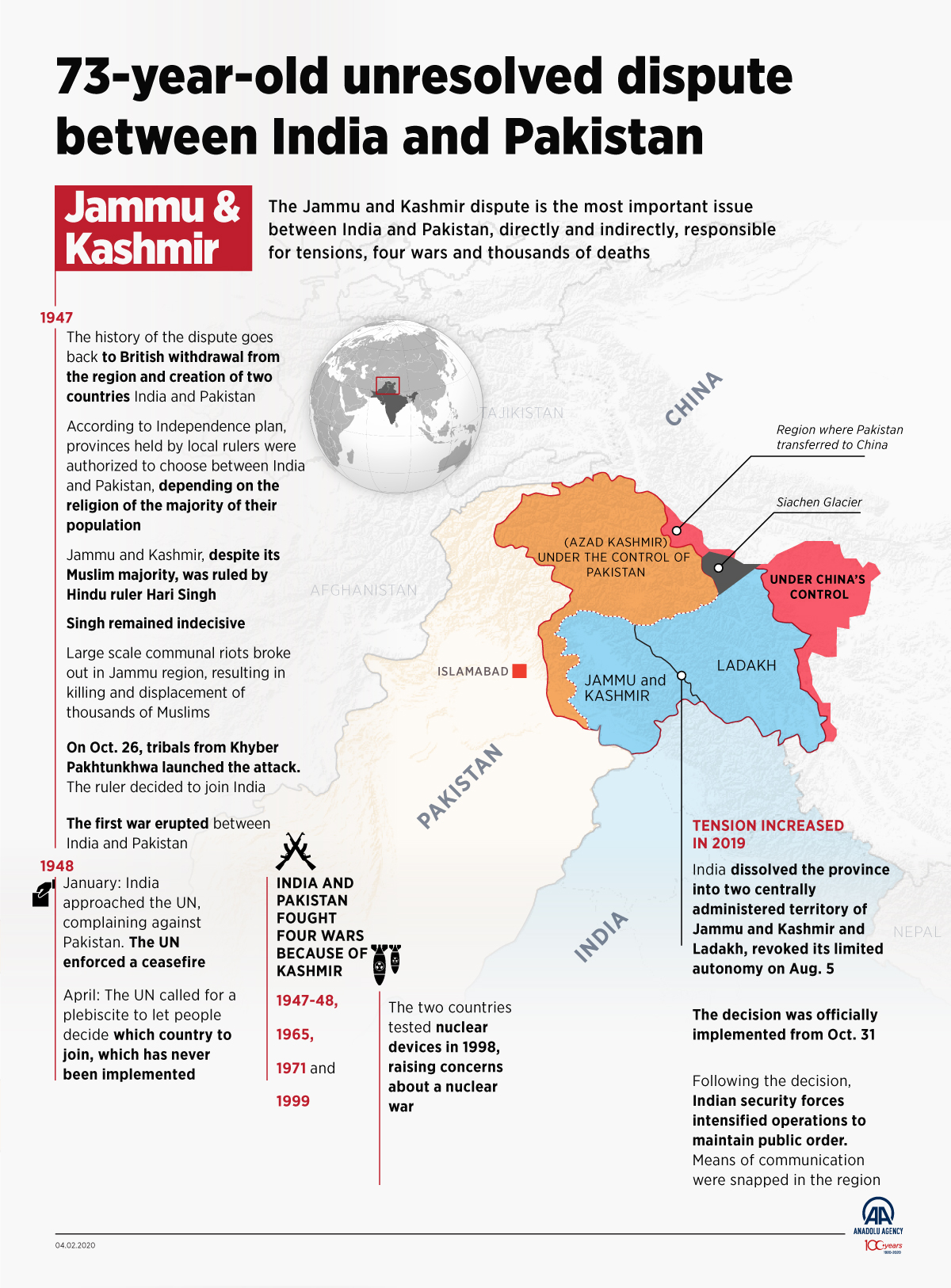Description

Copyright infringement is not intended
Context: Finance Minister reminded Parliament that it was the country’s first Prime Minister, Jawaharlal Nehru, who internationalised the Kashmir issue by taking it to the United Nations.
Why and how Kashmir issue got internationalized?
- Both the British government and Lord Mountbatten, who was the first Governor General of India after Independence from August 15, 1947 to June 21, 1948, believed that UN could help resolve the Kashmir dispute.
- Mountbatten suggested this to Muhammad Ali Jinnah at a meeting between the two men in Lahore on November 1, 1947.
- After Nehru met Liaquat Ali Khan in Lahore the following month, Mountbatten was convinced that deadlock was complete and the only way out now was to bring in some third party in some capacity or other.
- Reference to UN:
- India was not prepared to deal with Pakistan on an equal footing. But in December 1947, Nehru agreed to refer the dispute to the UN under article 35 of the UN Charter.
- Consequently, on December 31, 1947, Nehru wrote to the UN secretary general accepting a future plebiscite in Jammu and Kashmir.
- Sardar Patel was uncomfortable with Nehru taking the matter to the UN, and thought it was a mistake.
- Issue in the UN:
- The UN Security Council took up the matter in January 1948.
- India was unhappy with the role played by the British delegate, Philip Noel-Baker, who it believed was nudging the Council towards Pakistan’s position.
- On January 20, 1948, the Security Council passed a resolution to set up the United Nations Commission for India and Pakistan (UNCIP) to investigate the dispute and to carry out “any mediatory influence likely to smooth away difficulties”.
Article 35 vs Article 51 of UN Charter
- There has been some debate on whether India chose the wrong path to approach the UN.
- If India has taken the matter to the UN under Article 51 of the UN Charter, instead of Article 35, the outcome could have been different.
- Articles 33-38 of the UN Charter lay out that if the parties to a dispute that has the potential for endangering international peace and security are not able to resolve the matter through negotiations between them, or by any other peaceful means, or with the help of a “regional agency”, the Security Council may step in, with or without the invitation of one or another of the involved parties, and recommend “appropriate procedures or methods of recommendation”.
- Specifically, Article 35 only says that any member of the UN may take a dispute to the Security Council or General Assembly.
- Article 51, says that a UN member has the “inherent right of individual or collective self-defence” if attacked, “till such time that the Security Council has taken measures necessary to maintain international peace and security”.
Unresolved Kashmir issue:

https://indianexpress.com/article/explained/nirmala-sitharaman-nehru-united-nations-pakisitan-kashmir-dispute-7834191/















